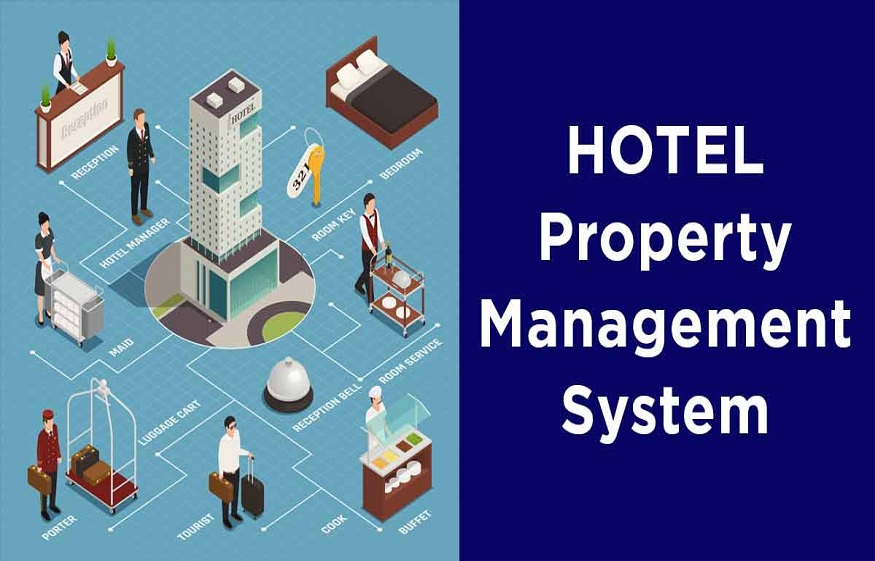
How Hotel Management Helps to Manage Hotels Effectively
Success in the fiercely competitive hospitality sector depends on efficient hotel management. In addition to offering a first-rate guest experience, a well-managed hotel guarantees profitability, along with operational effectiveness, as well as brand reputation. Hotel management is a broad field that includes everything from strategic planning in addition to decision-making to supervising daily operations. You’ll look at five crucial pointers in this post that can assist hotel managers in overcoming the difficulties of managing a profitable business.
1. Embrace Technology and Automation
Hotels must now embrace technology and automation in order to stay competitive alongside providing great guest experiences in the quickly changing digital landscape. Hotel managers with the help of Hotel Management System can increase productivity, create new opportunities for expansion and profitability, as well as streamline operations by incorporating cutting-edge solutions.
Being the centre of contemporary hotel operations, the Property Management System (PMS) is a full-featured software solution. It takes care of inventory management, online reservations, check-in and check-out procedures for guests, combined with other key systems such as point-of-sale platforms and revenue management. Reflecting on the own practice for a moment, purchasing a feature-rich yet user-friendly PMS can significantly raise operational efficiency and reduce the number of errors created by hand,as well as ensure your guests have a smooth experience from booking to departure.
2. Foster a Culture of Exceptional Customer Service
Providing outstanding customer service is essential to success and a crucial differentiator in the cutthroat hotel sector. Hotels that cultivate culture of exceptional service leave a lasting impression as well as build a devoted clientele. Hotel managers can instill a customer-centric ethos throughout their organization by putting strategic approaches into practice.
Investing in extensive training programs for front-line employees is one of the most important components. These courses ought to cover development of soft skills like effective communication, empathy, and problem-solving, along with conflict resolution in addition to teaching technical skills. Employees are kept abreast of a industry best practices through ongoing training opportunities, which also give them tools they need to consistently anticipate and surpass guests’ expectations.
Fostering exceptional customer service also involves giving employees the freedom to decide for themselves and act quickly to resolve problems. Hotel managers should have faith in their employees as well as grant them the freedom to promptly and effectively handle guest complaints without needless red tape or delays. This strategy gives staff members a sense of responsibility along with ownership, which encourages them to go above and beyond to guarantee guest happiness.
3. Implement Effective Revenue Management Strategies
A hotel’s top priority in the fiercely competitive hospitality sector is to maximize revenue. Using efficient revenue management techniques is essential for pricing optimization, and raising occupancy rates, as well as eventually increasing profitability. Hotel managers can achieve sustainable growth and gain a competitive advantage by putting strategic approaches into practice.
Dynamic pricing is a new revenue management strategy that changes the prices of hotel rooms according to demand. At the same time it considers seasonal factors and market conditions. Hotel managers use sophisticated revenue management software to analyze previous data. Prices can then be set accordingly to maximize revenue while remaining competitive Hotels maximize revenue all year round by adopting this tactic: if it’s busy time, they charge more, a lower rate during slow periods with attractively packaged fire sales as the only option.
4. Prioritize Sustainability and Corporate Social Responsibility
In today’s business world, hotels looking to keep up with changing social and environmental norms as well as looking after their guests must make sustainability in addition to corporate social responsibility (CSR) programs top priority.This is how hotel bosses are reducing their environmental impact, improving the public image of their brand, and attracting more and more travelers who are receptive to these goals.
Hotel initiatives for sustainability rest on two pillars: water conservation and energy conservation. Effective energy saving measures, plus digital thermostats tomorrow. Smart curtain rods and shutters today; not only reduce the environmental impact of hotels but also bring them immediate cost savings. As an additional follow-up to this initiative, in-room guides are provided and posters ready to be hung on walls throughout the buildings. At the same time, employees and guests are led through specially designed awareness campaigns promoting better conservation habits.
Creating extensive programs for recycling and waste management is another essential component of sustainable hotel operations. This entails cutting back on single-use plastics, starting food waste composting programs, and creating recycling guidelines for things like aluminum, glass, and paper. These procedures can be streamlined as well as proper material disposal along with recycling ensured by forming partnerships with nearby recycling facilities and waste management firms.
5. Cultivate a Talented and Motivated Workforce
A hotel’s ability to succeed in the fast-paced and fiercely competitive hospitality sector is closely tied to the skill, commitment, and drive of its staff. Hotel managers need to put strategies that draw in, keep, alongside develop a highly qualified and motivated staff of professionals at the top of their priority list. Hotels can achieve long-term sustainability, drive operational excellence, and provide extraordinary guest experiences by nurturing a talented as well as motivated workforce.
Offering competitive pay and benefits packages is one of the most important factors in luring as well as keeping top talent. Together with competitive pay, this also entails extensive benefits, in addition to incentives, along with recognition initiatives that honor exceptional achievement. Hotel managers can encourage a sense of loyalty and inspire staff to constantly give their best work by showcasing a commitment to just compensation and recognizing employee contributions.
Continuing professional development is another important aspect of developing a skilled workforce. By funding workshops, training courses, and other educational materials, staff members can grow professionally within the company, improve their skill sets, and stay current with industry developments. In addition to providing the hotel with a highly trained as well as knowledgeable staff, this also shows that the employer values the development along with happiness of its workers, which raises retention rates.
Conclusion
Effectively managing a hotel is a huge job, one that requires a combination of effective operating, strategic planning and thinking about the customer. The hotels management system can overcome the challenges of the industry and get onto a path of long-term success by applying automation and technology in addition to their own efforts, creating an environment that stresses nothing but top-notch customer service, putting profitable revenue management strategies to work, giving sustainability with corporate social responsibility first and foremost status, and cultivating talented, capable workers.


